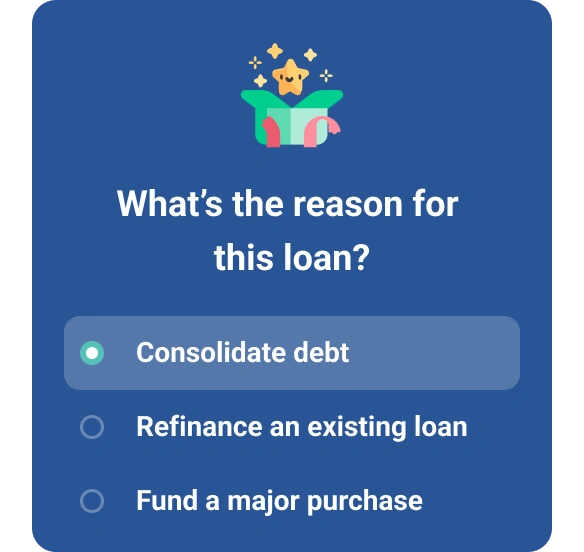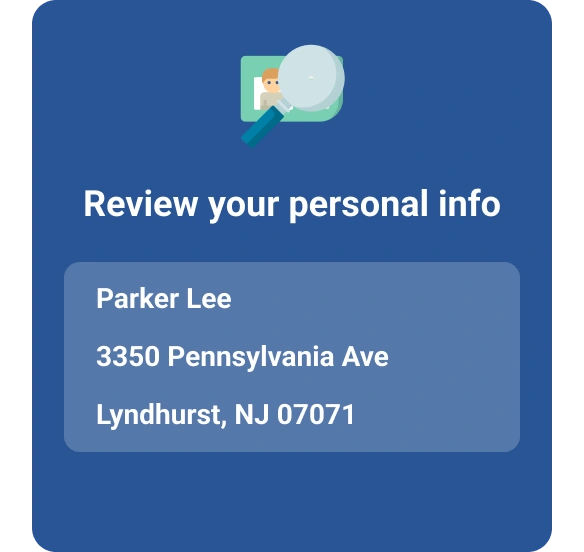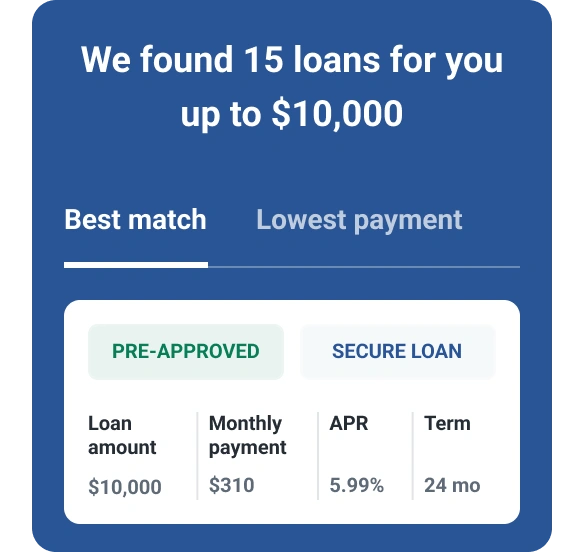Should I Get a Personal Loan to Pay Off My Credit Card?
Quick Answer
If your credit card account has a steep APR and ballooning balance, it may be hard to repay with your existing income alone. You can get a personal loan to pay off your credit card, but first know the pros, cons and alternatives.

When you accumulate credit card debt, the goal should be to pay it off as quickly as possible using your income. Life happens, however, and you might find yourself with a rapidly growing credit card balance and a steep interest rate making it seem impossible to pay off.
One way to pay off a lingering credit card balance is with a personal loan, in this case also called a debt consolidation loan. Borrowing from one lender to pay another doesn't always make sense, but consolidating credit card debt with a personal loan that has a lower interest rate can be a good strategy for some overwhelmed borrowers. Let's go over how debt consolidation loans work, how to get one and whether it might be a good option for you.
Compare personal loan rates
Find APRs from 4.99% to 35.99% and flexible terms of 12 to 120 months. Loan amounts range from $1,000 up to $250,000, with funding available the same day or up to 7 days.
Offers from our partners
View all of our Best Personal Loans for 2026 to see what you’re likely to qualify for, and the rates and terms you might get.
Benefits of Using a Personal Loan to Pay Off Credit Card Debt
Although one isn't always better than the other, there are some significant differences between personal loans and credit cards. Consolidating your credit card debt into a single personal loan can have perks, including:
Lower Interest Rate
In general, personal loans tend to have lower interest rates than credit cards. According to the latest Federal Reserve data from August 2024, credit cards have an average interest rate of 23.37% compared with the average 12.33% for 24-month personal loans. A lower interest rate means less interest accrues each month, which saves money and can make it easier to pay down your balances.
Lower Monthly Payments
The monthly payment on a personal loan might be lower than the combined monthly payments on your credit cards. This can make it easier to avoid missing a payment and the subsequent credit score harm that typically comes with it.
Streamlined Monthly Payments
You'll also have fewer payments with a personal loan, which could be easier to manage. But remember that keeping your credit cards open can help your credit score, even if you don't use them. It isn't advisable to close your accounts even once the balance is zero, but putting away your credit cards so you aren't tempted to use them again is a good idea.
May Help Your Credit
The amount of available revolving credit you're using at any given time is called your credit utilization rate. The higher it is, the more it can hurt your credit score and the more lenders may worry that you're overly reliant on debt. To do less harm to your credit score, your credit utilization rate should be under 30%. (For example, with a $10,000 limit, you wouldn't carry a balance above $3,000.) Utilizing more than 30% of your available credit on credit cards can have a greater negative effect on your credit. If you're struggling with credit card debt and have a high utilization rate, paying off the card with a personal loan lowers your credit utilization and could ultimately help your credit.
Drawbacks of Using a Personal Loan to Pay Off Credit Card Debt
Consolidating credit card debt with a loan isn't a decision to take lightly. Before you make this move, understand some of the potential pitfalls, including:
Upfront Fees
Origination fees on personal loans are typically between 1% and 8%, but they can be as high as 10%. This extra expense can gobble up some of your potential savings. But you might qualify for a low-fee (or no-fee) loan if you have good credit.
No Guaranteed Loan Amount or APR
You might not qualify for a large enough loan to pay off your credit cards completely. Or, you might only qualify for a loan that has a higher interest rate than your credit cards.
Could Lead to More Debt
If you have credit card debt from overspending or you struggle to afford your household necessities, a personal loan isn't a sustainable or long-term solution. You might find yourself again relying on your credit cards after you pay them off and wind up deeper in debt.
Should You Pay Off Credit Card Debt With a Personal Loan?
Paying off your credit card balance with a personal loan can be the right decision, but it's not always the best solution depending on your situation and your finances. Here are some scenarios when it could be a wise decision, and when it may not be the ideal option.
When a Personal Loan Could Make Sense
- If you qualify for a loan with a much lower interest rate: Credit card balances with high APRs grow rapidly, which can make them feel impossible to catch up on and pay off. If you're exploring this option due to a high credit card APR, and you qualify for a loan with an interest rate low enough to save you significant amounts of money, it could be a reasonable option.
- If the debt was due to one-off expenses or issues: You shouldn't get in the habit of paying off debt with debt, but this could make sense on a one-time basis for unique situations. Say your dog needed emergency surgery and you had to put the unexpected $7,000 bill on a credit card since you didn't have enough savings. Or you racked up debt you thought you could pay off, but your circumstances changed (such as losing your job). When you're financially responsible but in a tough situation you think you can get—and stay—out of, a loan could help.
When a Personal Loan Could Be a Bad Move
- If your credit card debt was due to overspending on nonessentials or impulse shopping: If you borrow to pay off this debt but have a tendency to live beyond your means, this loan could be a temporary solution and leave you at risk of the same problem later. This situation might require some budget and habit changes rather than a loan.
- If you can't score a low interest rate: While personal loan interest rates are typically much lower than credit cards, they can still be high if you have bad credit. If a loan's APR is similar to your credit card APR, rethink if it's worth it, especially if there are fees.
- If the loan interest rate is steep: On that note, some loans charge hefty origination fees, especially for those borrowers with less-than-stellar credit. Do some math to see if you'd still save money with this fee.
How to Get a Personal Loan
If it sounds like the best way to tackle your credit card debt is to consolidate it with a loan, follow these steps to get a personal loan.
- Check your credit score. Your credit score is a major factor in helping lenders determine your eligibility and terms. Check your FICO® ScoreΘ for free with Experian to learn where you stand, and see if your credit needs improvement before you start applying.
- Calculate the amount you need to borrow. Lenders offer varying ranges of loan amounts, so you can narrow down options by determining how much you need. Note that when loans have origination fees, they're deducted from the loan disbursement, so you may need to borrow a larger amount to account for it.
- Estimate monthly payments. As you research options, use a personal loan calculator to estimate what your monthly payments would be and make sure it fits in your budget.
- Get prequalified with multiple lenders. Lenders have differing borrower criteria, terms and fees, so you can save money by getting prequalified and comparing quotes at three to five lenders. This counts as a soft credit inquiry, which won't impact your credit score.
- Compare all loan terms. After collecting quotes, carefully compare terms like fees, restrictions, repayment terms, funding time and any discounts. Note that these could change slightly once the lender runs a hard credit check in the application process.
- Choose a lender and apply. After selecting your top option, apply on the lender's website. The process can vary, but you'll need to provide a range of personal and financial information, and potentially some documentation like pay stubs or tax returns.
- Review the offer and accept the loan. Carefully review your finalized loan offer, which could vary from the initial quote. If you're not happy, you can decline and apply elsewhere. If all looks good, sign the agreement, and the funds will be on their way.
Alternatives to Using a Personal Loan to Pay Off Credit Card Debt
Paying off a credit card balance with a personal loan isn't the best option for every person or circumstance. Here are three alternative options to consider.
Balance Transfer Credit Card
You can move debts from one or more credit cards to a new balance transfer credit card. The interest rate on regular credit cards far exceeds most personal loans, but if you qualify for a balance transfer card with an intro 0% APR offer, you can move your balance and not pay interest until the promotion ends (often up to 21 months). Just pay off as much as possible before that promotional rate ends and the regular APR kicks in. Also, keep in mind that you need good to excellent credit to qualify, and many cards charge a balance transfer fee of 3% to 5% of the transferred amount.
Debt Payoff Methods
Rather than converting your credit card debt to personal loan debt, you could stick with the credit card and employ a debt payoff strategy. There are many proven options, like the debt avalanche and debt snowball methods. It takes discipline, but it's only temporary. Regardless of which you choose, having a structured plan with goals can make debt repayment feel feasible.
Borrowing From Family or Friends
If you can't qualify for a personal loan, you could ask a family member or close friend to lend you the cash to pay off your credit card, either interest-free or at a low rate. Just be forewarned that borrowing from loved ones has the potential to damage relationships; reduce conflict by agreeing on terms, formalizing them in a loan agreement and repaying as promised.
Compare Personal Loan Offers
If a personal loan seems like the best way to pay off your credit card debt, you can use tools from Experian to get debt consolidation loan offers from multiple providers. Checking your offers results in a soft credit inquiry, which won't impact your credit scores, and you can quickly compare the results to find a loan with the most favorable terms.
Need a personal loan?
Whether you're looking to eliminate debt or access cash fast, compare personal loan offers matched to your credit profile.
Start now for freeAbout the author
Emily Starbuck Gerson is a freelance writer who specializes in personal finance, small business, LGBTQ and travel topics. She’s been a journalist for over a decade and has worked as a staff writer at CreditCards.com and NerdWallet. Emily’s work has appeared in CNBC, MarketWatch, Business Insider, USA Today, The Christian Science Monitor and the Chicago Tribute, among other websites and publications.
Read more from Emily Starbuck

